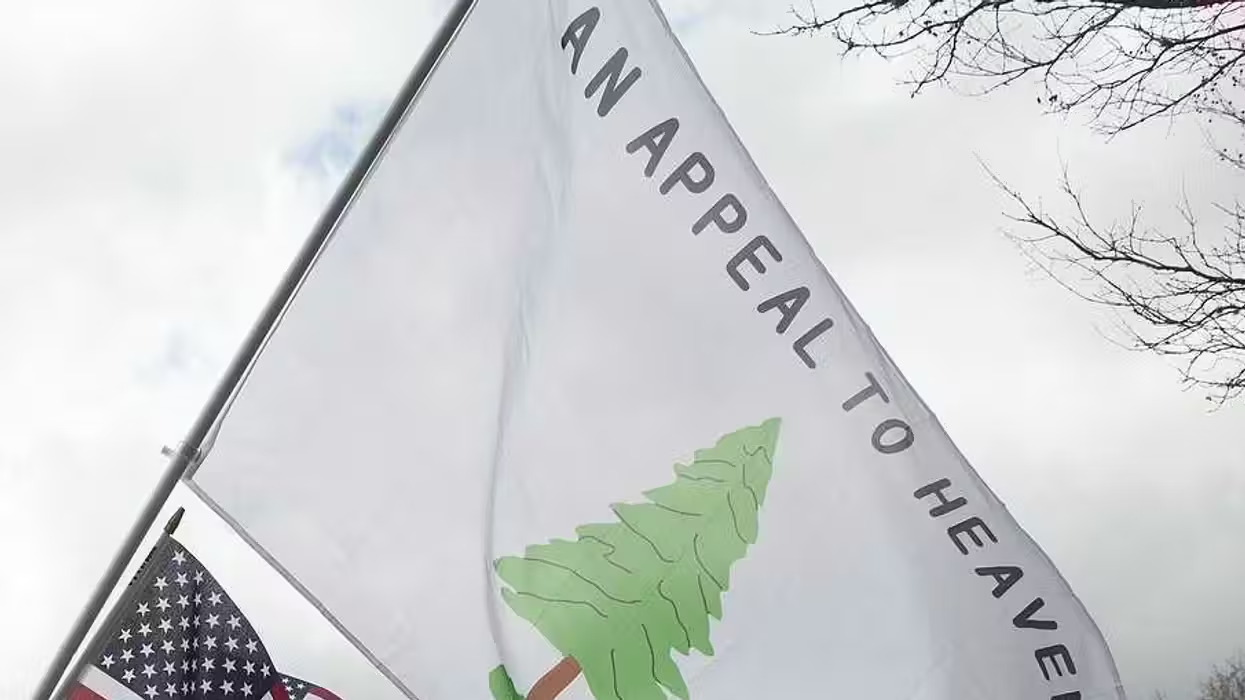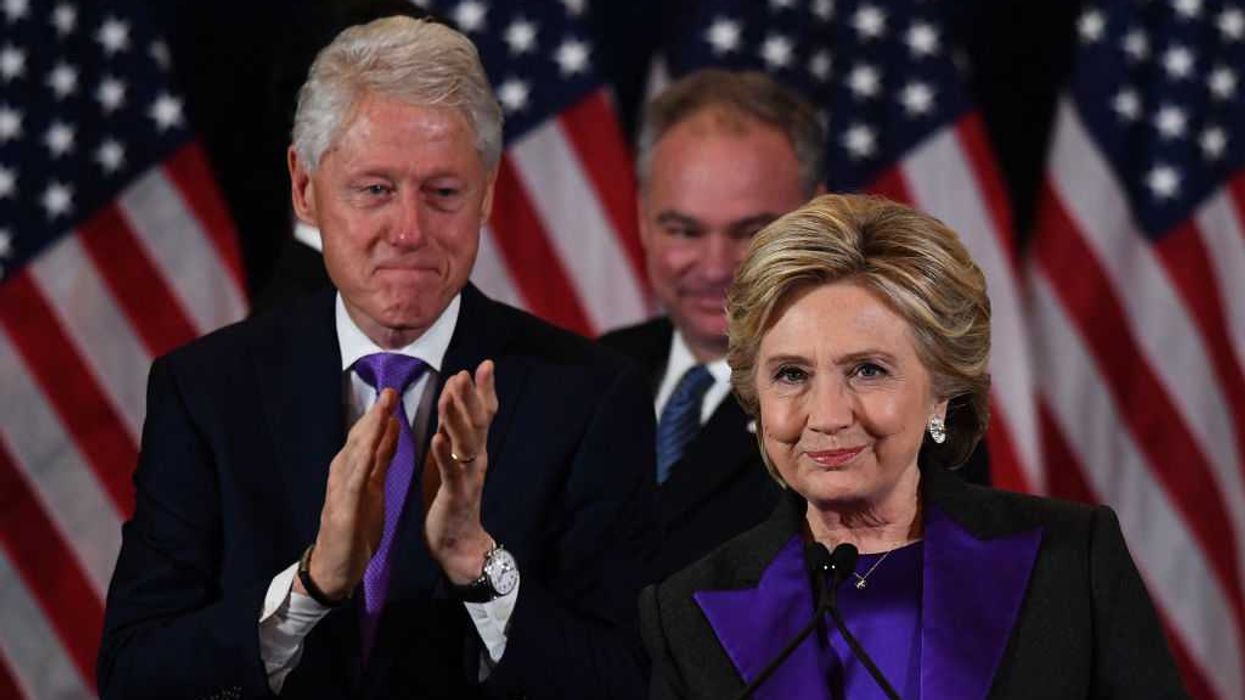
© 2025 Blaze Media LLC. All rights reserved.
All prisoners in Guantanamo should stay there until the U.S. has elminated radical Islam.
There has been criticism of the military medical staff at the U.S. military detention facility at Guantanamo Bay, Cuba, over the ordered release earlier this month of Ibrahim Idris, a native of Sudan who has been held as an unlawful combatant at Gitmo for over 11 years.
Idris was captured with al Qaeda fighters in 2001. Shortly after arriving at Guantanamo in 2002, he was diagnosed by a U.S. Army psychiatrist as a schizophrenic. Islamist apologists are seizing on this gesture of humanitarian compassion and practical military efficiency by saying Idris should have been medically released soon after his diagnosis.
What the al Qaeda fighter’s apologists and sympathizers don’t realize is that two entities must recommend release of a detainee who may be suffering from a medical condition which may render him less of a threat to repeat his aggression against the United States. One is the medical command (not just at Gitmo, but at the highest levels of the U.S. Army Medical Department). The other is the intelligence command.
Back in 2002, when I was serving at Guantanamo Bay as the ranking Army Medical Department officer with the Joint Detainee Operations Group, Joint Task Force 160, I was selected to participate in the very first repatriation of a Gitmo detainee: an Uzbek Afghani national named Abdul Razeq.
We nicknamed Razeq “Wild Bill,” due to his bizarre behavior in Camp X-Ray, where he would take bites out of his flip-flops, hang objects from his genitals, and generally cause frequent verbal disruptions. Eventually, the military medical staff diagnosed Razeq as schizophrenic, but, by his own admission to me, during a long break in his release journey to the Leeward airport at Guantanamo, Razeq offered another source for his symptoms.
Razeq admitted to being a heroin addict who had picked up an AK-47 in the fall of 2001 for the Taliban in order to sustain his habit. Some of the bizarre behavior, as it turned out, was due to his violent withdrawal from his heroin addiction.
But this behavior and diagnosis alone were not sufficient to get him a trip back to Afghanistan. He had to be declared not only a low risk of returning to the enemy, but also had to be determined not to be of any further intelligence value. Lastly, even if these two criteria are established, the country from which the detainee originated, or his national country of origin, must be able and willing to take him back.
In Idris’ case, Sudan was not a stable enough place for him to be returned to. Sudan still may not be safe enough.
The Geneva Conventions stipulate that even lawful combatant Prisoners of War may be held without charge, “until the end of hostilities.” During World War II the U.S. held over 400,000 German and Italian lawful combatant POWs without one call for extra legal privileges for them or for medical releases back to their countries of origin. Even now, with a combined 28.9 percent recidivism rate (reported by the Director of National Intelligence, September 2013) of confirmed and suspected recidivists amongst released Gitmo detainees, it may not be wise to release any of the Gitmo detainees who aren’t facing war crimes charges in the Military Commissions there.
How much more blood on his hands will it take before the domestic threat of Islamist terror hits home for Barack Hussein Obama (Boston, Ft. Hood, 13 defeated terror plots on Manhattan alone)?
How many more recidivists (Abu Sufian bin Qumu, alleged mastermind of the Benghazi jihadi attack, and former Gitmo detainee) will it take before he realizes we are in a war with Islamists who want us all dead and not in a game of “Capture the Flag?”
Idris may be harmless now, and I appreciate why he was released, but why take that chance while the Global War on Terror still rages? This fantasy that Islamist terrorists should be treated like common criminals and then arbitrarily released is literally killing us, and feeding the flames of Arab uprisings and civil wars (Egypt, Syria).
Giving up the high ground in the Global War on Terror by abandoning Iraq, in the face of overwhelming success of keeping the peace by keeping troops in the countries we liberated and defeated in World War II, was perhaps the President’s most myopic and deadly foreign policy blunder to date. That blunder has grown from ripples of internal Middle East strife, into a tsunami of destabilization in the region today.
Today, we have troops in over 70 countries in our struggle with Islamists who want to kill us - including Germany, Japan and Italy, countries we defeated in World WAr I. Those countries are now world economic leaders, peaceful, and prosperous because we stayed, economically and militarily. Leaving Afghanistan would seal the fate of that region to the Iranians, Taliban and al Qaeda, just like throwing Iraq to those wolves has done.
When will we learn from our past in a way that teaches every new generation that the only way to truly defeat an enemy is to take away the means and will for them to fight?
Sun Tzu, author of The Art of War, said, “100 victories in 100 battles is not the most skillful, subduing the enemy’s military without battle is the most skillful.”
We cannot hope to influence the enemy “without battle” if we are not willing to remain close enough to him to do so. And we certainly can’t hope to do that by releasing more than 600 enemies from our military detention facility, only to meet them again on the battlefield and on our streets.
“Until the end of hostilities,” is soon enough for me.
Feature Photo Credit: Brennan Linsely/AP
–
TheBlaze contributor channel supports an open discourse on a range of views. The opinions expressed in this channel are solely those of each individual author.
Want to leave a tip?
We answer to you. Help keep our content free of advertisers and big tech censorship by leaving a tip today.
Want to join the conversation?
Already a subscriber?
more stories
Sign up for the Blaze newsletter
By signing up, you agree to our Privacy Policy and Terms of Use, and agree to receive content that may sometimes include advertisements. You may opt out at any time.
Related Content
© 2025 Blaze Media LLC. All rights reserved.
Get the stories that matter most delivered directly to your inbox.
By signing up, you agree to our Privacy Policy and Terms of Use, and agree to receive content that may sometimes include advertisements. You may opt out at any time.






